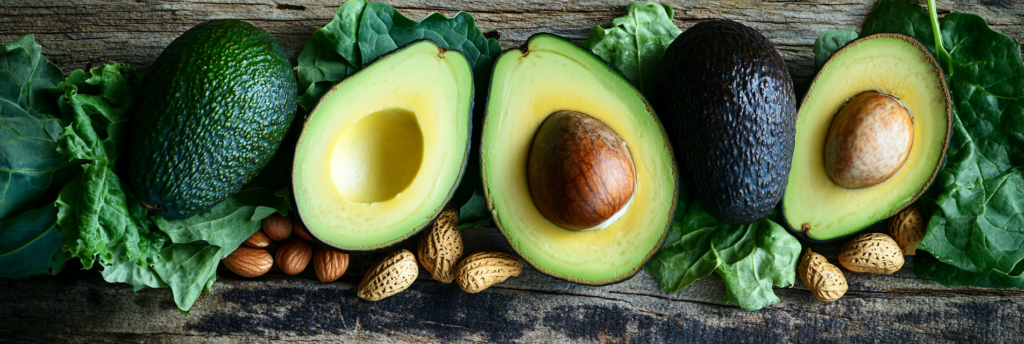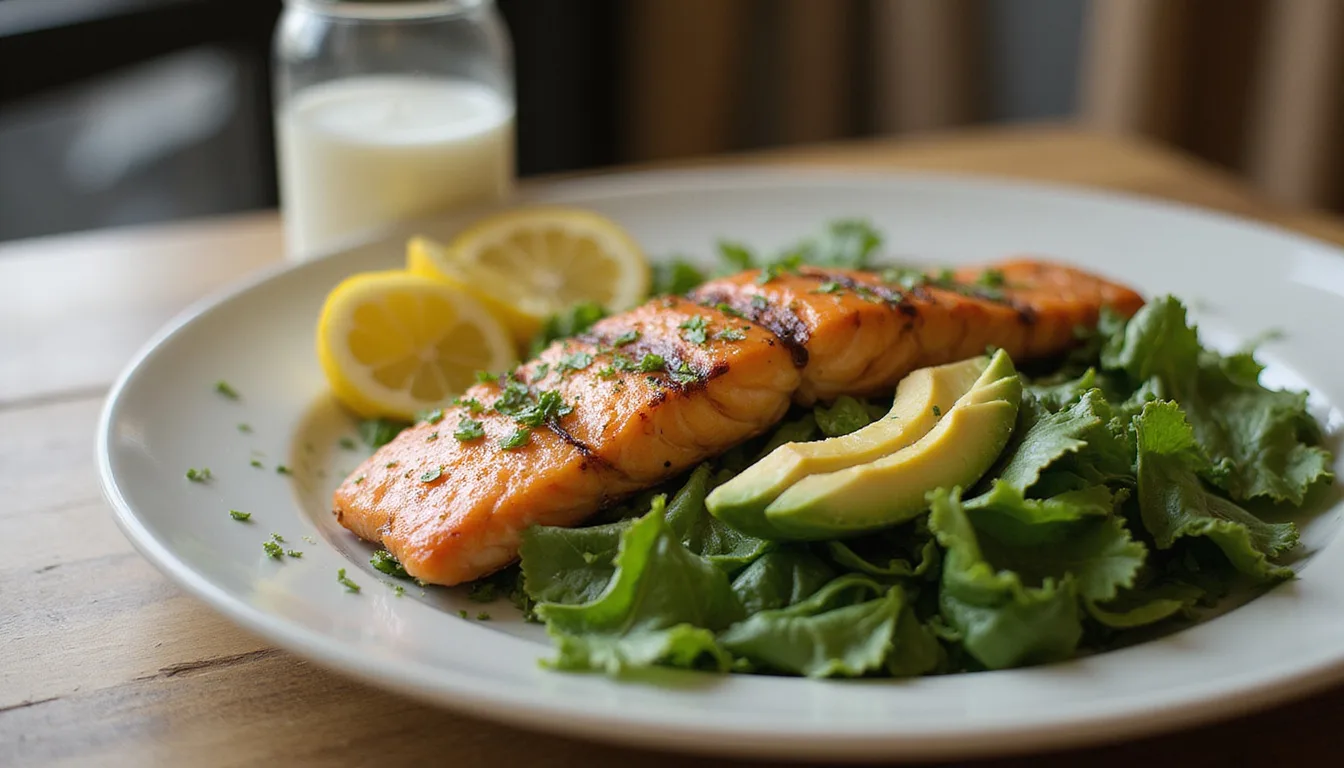
That Time I Accidentally Fasted!
So, let me tell you about the first time I fasted. Spoiler alert: I didn’t even mean to. I was deep into my keto journey—feeling pretty smug about my newfound ability to say no to bagels—when I realized I had skipped lunch entirely. By the time dinner rolled around, I wasn’t even that hungry. My body was like, “Nah, we’ve got enough fuel from breakfast. Take a chill pill.” That’s when it hit me: Fasting on keto for beginners who’ve never done it before wasn’t the Herculean effort I thought it would be!

It felt… natural. And the best part? I’d heard fasting and keto were like peanut butter and jelly (well, almond butter and jelly, but you get my point). Fasting turbocharges the benefits of keto, and I was all in.
If you’re new to keto or fasting—or both—don’t worry. I’ve got your back. Let’s break down the basics, sprinkle in some tips, and make fasting on keto feel as approachable as your favorite keto-friendly snack.
What is Fasting on Keto for Beginners, and Why Does it Pair So Well with Keto?
Fasting is exactly what it sounds like–going without food for a certain length of time. It might seem daunting at first (skip a meal? The horror!), but when you’re on keto, fasting can feel surprisingly manageable.
Why Keto Makes Fasting Easier
Here’s the magic: On keto, your body shifts from burning carbs for fuel to burning fat. This process, known as ketosis, means your body has a steady energy supply from fat stores. So, when you fast, you’re not relying on a constant stream of snacks to keep your energy up. Your body becomes a fat-burning machine, making it easier to breeze through fasting periods without feeling like you’re going to gnaw your own arm off.
Fasting 101: Types of Fasts for Beginners
Fasting doesn’t mean you have to go days without eating, like some monk on a mountain. There are various types of fasting, and some are perfect for beginners. Here are the most popular options:
1. Intermittent Fasting (IF)
This is the fasting “gateway drug” (in a good way). With intermittent fasting, you eat during a specific window and fast the rest of the time. Common beginner-friendly schedules include:
- 16/8 Method: Fast for 16 hours, eat within an 8-hour window.
- 12/12 Method: Fast for 12 hours, eat within the other 12. Easy-peasy.
2. OMAD (One Meal a Day)
As the name suggests, you eat one big meal a day and fast the rest. It’s a bit more advanced, but it’s worth trying once you’re comfortable with intermittent fasting.
3. 24-Hour Fasting
This is a once-a-week approach where you fast for a full 24 hours. For example, you eat dinner one night and don’t eat again until dinner the next day.
Benefits of Fasting on Keto
So, why bother combining fasting with keto? Turns out, the two together create a dynamic duo of health benefits:
- Enhanced Fat Burning: With your body already in fat-burning mode thanks to keto, fasting accelerates the process.
- Improved Insulin Sensitivity: Both keto and fasting reduce insulin levels, making your body more efficient at managing blood sugar.
- Increased Energy: Ketones (the fuel your body produces in ketosis) are like rocket fuel for your brain. Fasting can boost mental clarity even more.
- Simplified Meal Planning: Eating fewer meals means less time in the kitchen. You can Marie Kondo your meal prep and still thrive.
Getting Started: How to Ease into Fasting on Keto
If the idea of skipping meals makes you panic, relax. Here’s a step-by-step guide to make fasting on keto feel as natural as binge-watching your favorite show:
1. Start with Keto First
Before you dive into fasting, spend at least 1-2 weeks getting into ketosis. This gives your body time to adjust to burning fat for fuel. Plus, it helps curb those nasty carb cravings that can derail a fast.
2. Hydrate Like It’s Your Job
Fasting can deplete your electrolytes, so drink plenty of water. Add a pinch of Himalayan salt or sip on bone broth to stay balanced. Bonus: These tricks help ward off the dreaded “keto flu.”

3. Experiment with Intermittent Fasting
Begin with a 12/12 schedule (12 hours of fasting, 12 hours of eating) and gradually work your way up to a 16/8 window. Trust me, skipping breakfast is easier when you’ve got a buttery cup of keto coffee in hand.
4. Listen to Your Body
Feel lightheaded? Hangry? It’s okay to break your fast early. Fasting isn’t about suffering. It’s about finding what works for you.
5. Be Patient
Your first fast might feel a little awkward—kind of like your first time riding a bike. But stick with it, and it’ll become second nature.
What to Eat (and Not Eat) When You Break Your Fast
Breaking a fast is like waking a sleeping dragon. You want to do it gently, not with a stack of pancakes. Here’s what works best:
- Go for Fat and Protein: Think eggs, avocado, or a piece of salmon.
- Avoid Carbs: They’ll spike your insulin and undo all the hard work you did while fasting.
- Skip the Feast: Don’t go overboard. Start with a small meal and give your body time to adjust.
Troubleshooting Common Fasting Challenges
Let’s be real: Fasting isn’t all sunshine and six-pack abs. Here’s how to tackle the most common hiccups:
1. “I’m SO Hungry!”
Stay busy! A walk, a book, or even folding laundry can distract you. And remember, hunger comes in waves. Wait it out, and it usually passes.
2. Low Energy
Make sure you’re getting enough electrolytes. A lack of salt is often the culprit behind sluggishness.
Why Electrolytes Matter on Keto and Fasting
When your electrolyte balance is off, you might experience symptoms like:
- Fatigue or low energy
- Muscle cramps (hello, “keto leg”)
- Headaches
- Heart palpitations
- Dizziness or lightheadedness
These are often mistaken for “keto flu,” but they’re really signs of electrolyte deficiency.

3. Social Pressure
While most people have heard of fasting, friends and family might look at you like you’ve joined a cult. Keep it light: “I’m just giving my body a little rest. Don’t worry, I’ll be eating again soon!”
My Personal Fasting-on-Keto Routine
Here’s what a typical fasting day looks like for me (your mileage may vary):
- 7:00 AM: Wake up, drink a glass of water with a pinch of salt.
- 8:00 AM: Keto coffee (black coffee blended with MCT oil and a dollop of butter).
- 12:00 PM: Break my fast with eggs, spinach, and avocado.
- 6:00 PM: Enjoy a hearty keto dinner, like a bunless burger with cheese and a side of roasted veggies.
- 8:00 PM: Kitchen closed—fasting begins again.
Fasting on Keto for Beginners: Myths vs. Facts
Myth: Fasting Will Destroy Your Metabolism
Fact: Fasting actually boosts metabolism in the short term by increasing norepinephrine levels. Long-term fasting might slow metabolism, but intermittent fasting is safe and effective.
Myth: You’ll Lose All Your Muscle
Fact: As long as you’re eating enough protein during your eating window, your muscles are safe. In fact, fasting can increase growth hormone levels, which help preserve muscle.
Myth: You Can’t Exercise While Fasting
Fact: Many people find they have more energy for workouts during a fast. Just listen to your body and keep some electrolytes on hand.
Wrapping Up: Why Fasting on Keto for Beginners is Worth a Try
If you’re new to keto or fasting—or both—it’s normal to feel a little intimidated. But trust me, fasting on keto isn’t about starvation or misery. It’s about giving your body a chance to reset, burn fat, and feel amazing.
Start small. Experiment. Laugh at yourself when you accidentally eat a handful of almonds mid-fast (been there). And remember, this isn’t about perfection; it’s about progress.

So, what are you waiting for? Go grab your keto coffee, set your fasting window, and get ready to feel unstoppable. Happy fasting, my keto friends! You Got This!




